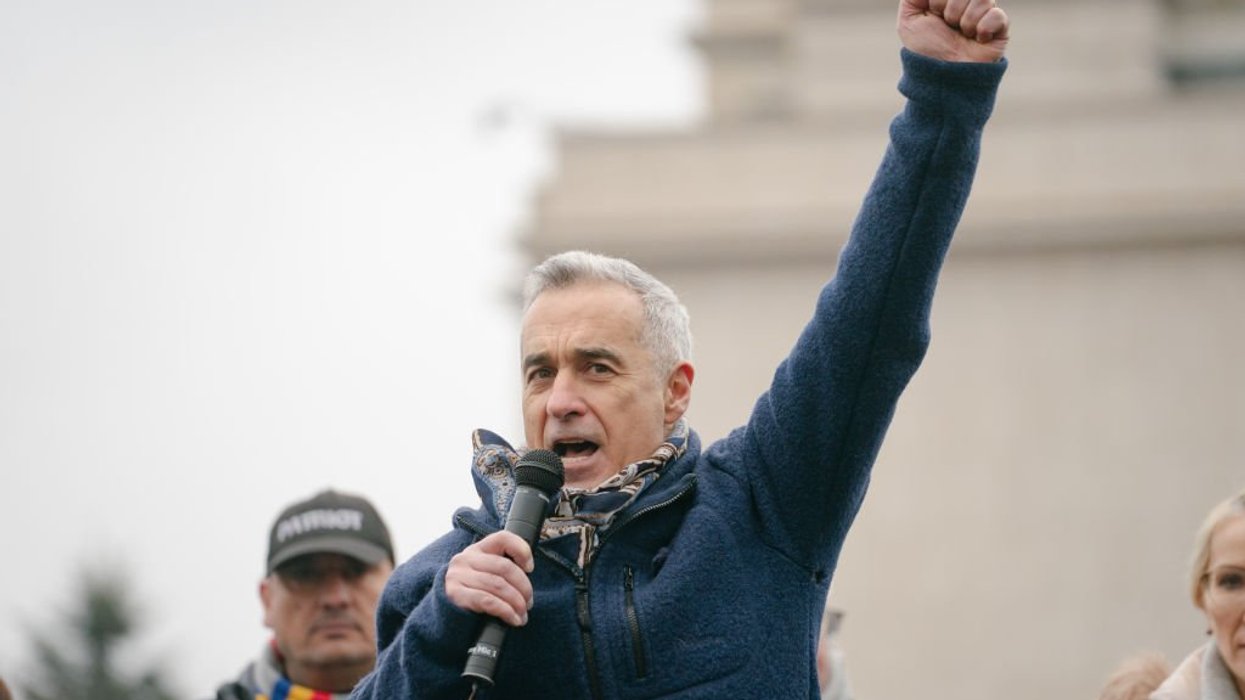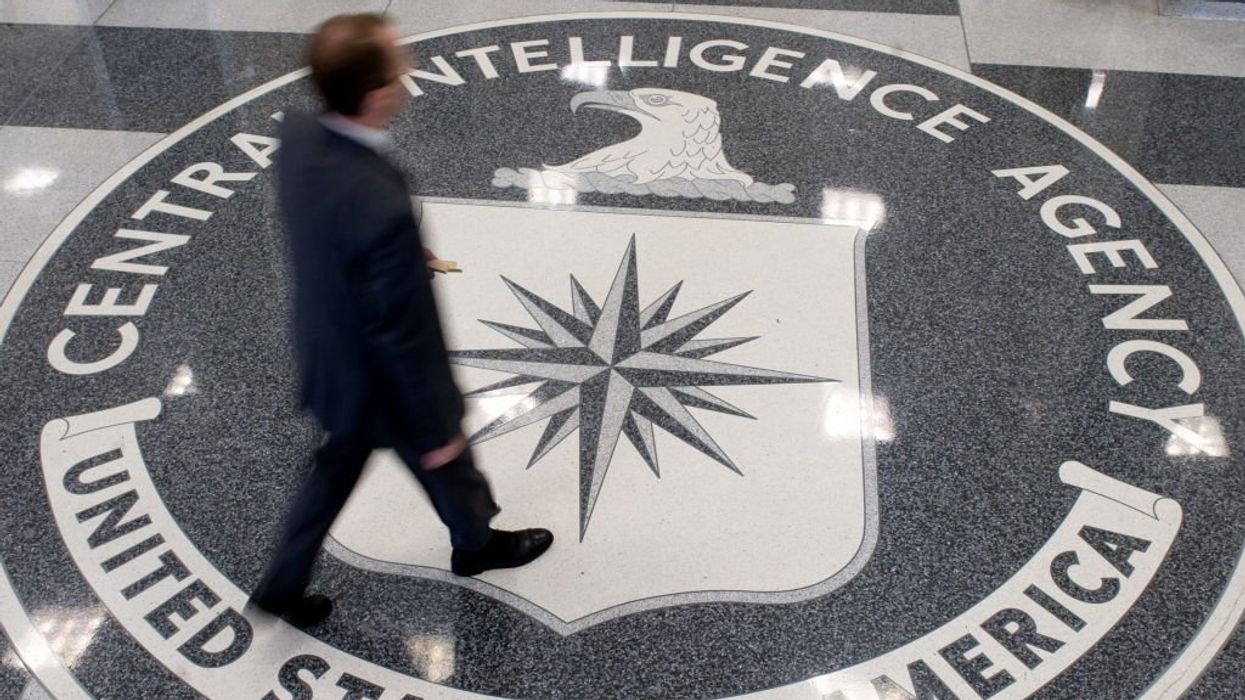GLENN: I saw a story about a guy named Andrew Lumish. He was featured on NBC news. A 46-year-old guy from Tampa, Florida, who happened to see the grave stones in a Tampa cemetery of these heroes.
And they were all falling part. I mean, you could imagine, you know, the mildew and the mold and the stains and everything else just from, you know, the weather in Tampa for all of those years. So he went out by himself and just started cleaning these monuments and cleaning these, you know, cemetery markers. He's now cleaned over 500 monuments. And he's a guy who's never served in the military.
And what I liked about this, it wasn't some guy going out and doing something that I promise you at some point they're going to shut him down because of some environmental reason or some stupid thing like that. But what I liked about him was the fact that he understood and was connecting with history because of this. And I think there's something really cool about this.
We wanted to get him on the phone. Andrew Lumish from Tampa, Florida, welcome to the program, sir. How are you?
ANDREW: I'm well. Glenn, thank you so much for having me this morning. I really appreciate the opportunity to speak to you.
GLENN: I'm thrilled. I saw your story a couple of days ago when it came out. First of all, explain how you got into it, and what you're doing, and what you've discovered.
ANDREW: Okay. Well, it's kind of multifaceted. Initially, there's obvious reasons and there's some reasons that are personal.
Part of it was, I love photography. And I photograph everything. I ended up stumbling upon a very old cemetery that is opened in 1850 in downtown Tampa, oldest cemetery in the area, and it was beautiful so I began to photograph it. And we went to a second cemetery, and I noticed the pure beauty of it, but something caught my eye, and it was the incredibly poor condition of monuments of heroes that served in every conflict from the Mexican wars to the Civil War to the Spanish-American War and up until World War II and Vietnam.
And I saw how terrible they were, and immediately it kind of infuriated me.
I was really upset by it. And so what I did, I began to research how to properly restore the monuments that are marble and granite and sandstone and every type of material, and I learned how to restore the monuments properly in the same way that they are restored in our national cemeteries, including Arlington. So I began to, on my day off, go to some of the historic cemeteries and restore some monuments, and that's how it began.
GLENN: Okay. So Andrew, a couple of things. First, I'm ashamed to say this but my first thought, when I saw this, was: How come he hasn't been stopped yet? And I don't mean because you're doing something wrong. There's got to be somebody out there in the government who can find something wrong with what you're doing.
Have you gotten any pushback at all?
ANDREW: None whatsoever.
GLENN: That's amazing.
ANDREW: I've been honored by the Department of veterans affairs because my story has gone viral several times, and they kind of piggybacked a little bit, because they share my story and what I do.
I've been honored by Governor Rick Scott at the state capital. I was invited, and my assistant and I, we had dinner at the Governor's mansion after receiving a wonderful volunteer award from Governor Scott and the Florida cabinet. And this week I was actually honored by all the Hillsboro County commissioners and the ceremony in downtown Tampa as well. So no pushback at all.
GLENN: So the thing that really drove me to get you on the phone was one -- do you listen to my program at all? Or do you know who am I call?
ANDREW: Yes.
GLENN: I don't mean "do you know who I am," I mean have you followed at all -- I'm really into history. And you said --
ANDREW: Yes, I do know that.
GLENN: You said one phrase that just sounded like it was twice as loud as anything else. You said, "I'm uncovering history."
ANDREW: Well, initially, I told you earlier, initially it became just the restorations themselves. But it has evolved, and what I decided to do was, I have a wonderful assistant who helps me with research because I'm very busy. She helps me fill in the blanks.
What we do now, we've used different resources, online, genealogy resources, libraries, and we are able to go back in time. It's 2017, so when we really fortunate that we can do the things that we do. So we're able to look at entire person's life. So not only will you see the before, what it looked like before, the terrible condition that the monuments were in before, but you'll see the after picture of the monument, but we tell their entire life story from the day they're born until their final day here on earth. We talked about all their achievement, accomplishments. I will say, I was somewhat torn, because sometimes you uncover some things that may not be particularly flattering.
But I was torn as to whether or not when we're telling these stories about these heroes whether we should talk about it, and we all have bumpy roads.
GLENN: Yeah.
ANDREW: Nothing's a flat road. Nothing goes in a straight line. So early on I decided we're going to tell their story but tell it in their entirety. We will talk about the nature --
GLENN: Good for you.
ANDREW: We put it in perspective.
GLENN: What was the thing that made you -- what did you stumble on -- I don't have to tell me the name of the person but what did you stumble across you were like, oh, man. What was it?
ANDREW: Well, there's a catalyst to all this as well. I did serve. However, I have friends who have served.
I also have a wonderful assistant, and he was 12 years in the military, and I was his confidante in a lot of ways, and unbeknownst to me, I really don't talk about this much. But I'm beginning to open up about it a little bit more.
He was a great guy. Super social. Wonderful guy. 12 years, he was still a reservist, he worked with me, on my team, and one day he just told me what he was going to do his entire weekend, and he went -- he told me everything, and then I texted him on a Sunday to let him know what his schedule was for Monday.
Well, a long story short, he had PTSD, and he took his life.
And when I do these restorations, and I had no idea. It was a complete and utter shock to me. When I do these restorations, I think of him. Not only do I tell the stories and complete these restorations, but he is always, always by my side. Because I don't want him to be forgotten either. It's very important.
GLENN: What was his name, Andrew?
ANDREW: Christopher Scott.
GLENN: Tell me about the World War I veteran who died on the USS Tampa. A German submarine attack.
ANDREW: Incredible story. 18 years old. Lewis Franklin Vaughn, at the age of 18, he ended up being, you know, in the Navy, essentially. And he served on the USS Tampa. By 1918, the war was coming to a close. And Germany was getting desperate. So all they had left, essentially, were submarine forces. And they were not going by rules of engagement, and they were submarining all ships going into England and London. They were torpedoing just supply ships that would be able to supply the United Kingdom.
So the USS Tampa, what their job was at the time was escort these supply ships to London and all open the UK to make sure that they were safe. On September 26, 1988, the German torpedo killed everyone on board. So Lewis Franklin Vaughn died on that day, but the interesting thing, and the personal thing on Mr. Vaughn, or young Mr. Vaughn was that before he chose to join the military to serve his country, he had three sisters. None of them lived to be beyond 14 months old. And I can imagine the conversation he had with his parents sitting at the table in his home, and they already lost all of their children. He's the only one who survived, and then he was killed by the Germans near the end, near the close of the first world war in September of 1918.
GLENN: Is there anything -- have you thought about -- do you, A, do the research on the person prior to, or after, or while you're cleaning the headstone?
ANDREW: It's a combination of all of the above. It all depends on the circumstances. It's a combination. You know, it depends on the circumstances. Every situation has its own set of circumstances.
Occasionally I will take students with me, high school students who love to go and I'll have them step back in the footsteps. And it's always good to know the history of the person and the events of that.
So I'll have them stand in the -- descendants who would have stood there at the funeral, and we talk about what the world was like, what the United States was when they were alive and when they die.
And what's great, you get the bad raps on the Millennials. The attention and love that these high school kids have, from different backgrounds -- you know what it's like in Tampa. It's muddy. It's wet. And they don't mind. They sweat. They get out there, and they have a great time and they learn a history lesson.
So the negativity about Millennials. But my experience, my own son, about to turn 21, it's been fantastic. It's been a great experience. And not just for them. It's therapeutic for me as well.
GLENN: Andrew, do you have a website? What's your website?
ANDREW: Well, we're working on it. We're building a website right now. It's going to be the goodcemeterian.com and the goodcemeterian.org, but right now we do most of everything on social media. The Facebook page is called the Good Cemeterian. It's a very interactive Facebook page. We have wonderful interaction from all over the world.
But the websites will be up and running in the next month or so. We also have a nonprofit, and we help organizations all across the -- locally for the most part now, but we vet military organizations that do good, especially for those who came home, and then they need that help. I always think of Chris in these moments.
So what we do is we -- we help support different organizations, so that they can achieve the goals that they want so they can make the lives of those who served our country much more pleasant and much more adaptable once getting home.
GLENN: Andrew Lumish, a guy who was a photographer, who started something that is now becoming a life passion, and I think Andrew is -- I just have this feeling that what you're doing is way beyond anything that you might even understand at this point.
You've started something really, really amazing. Thank you so much, Andrew. Appreciate it.
ANDREW: Thank you for having me this morning, Glenn. I do appreciate it, and thank you again, and thank you to all the men and women who serve our country. You are not forgotten. You are so important to the fabric of our society today, and we will continue doing what we do to support you.
GLENN: God bless you, Andrew, thank you very much. I hope so actually shake your hand sometime.
PAT: Great.
GLENN: Andrew Lumish.
STU: Fantastic. Just doing something outside in Tampa this time of year is a service to your country.
GLENN: Oh, yeah. Just walking from your front door to your car. I'm pretty brave and heroic. I went to work once this week.
STU: Just the once.
GLENN: I left my house, got into the car. I made it to the parking lot and I thought, I have we get out of the car and walk in, and we don't have, you know, air conditioned parking.
So I was at work technically, kind of.
STU: And here's your Purple Heart.
GLENN: What an amazing story.











